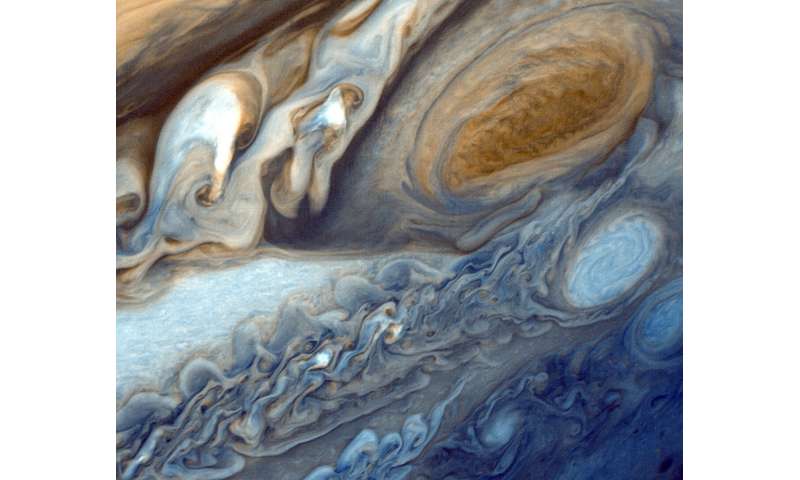Best of Last Week: Jupiter and Saturn to form double planet, hacking robot vacuums and a COVID-19 nasal spray

It was a good week for space news as a team of researchers at Rice University reported that this December, Jupiter and Saturn will look like a double planet for the first time since the Middle Ages—they claim it will appear as if separated by just one-15th the diameter of the full moon. And SpaceX delivered its second crew of astronauts to the International Space Station with one of its astronauts proclaiming that it beat the shuttle and Soyuz as a launching experience. Also, a team of astronomers at the University of Texas at Austin revived the decades-old idea of establishing the proposed "Ultimately Large Telescope" on the moon—and suggested it could be used to study the earliest stars in the universe.
In technology news, a pair of researchers, Nirupam Roy at the University of Maryland and Jun Han with the University of Singapore showed that popular robot vacuum cleaners could be remotely hacked to act as microphones. And a combined team from the University of Cambridge and Zhejiang University created efficient light-emitting diodes by depositing perovskites on a fluoride interface. Also, a team at Hong Kong University of Science and Technology demonstrated an origami-inspired robotic fingertip with shape-morphing capabilities—it also could switch between three configurations to give it more capabilities. And a combined team from MIT and Harvard University created a neural network that could learn when it should not be trusted—and report itself to its users.
In other news, a team of researchers at the University of Central Florida announced that they had identified some of the features that could make someone a virus super-spreader—such as having nasal congestion or a full set of teeth. And a team at Tel Aviv University developed what they described as a revolutionary CRISPR-based genome editing system treatment that destroys cancer cells.
And finally, a team at the University of Birmingham has developed an anti-COVID-19 nasal spray that is 'ready for use in humans,"—perhaps providing some degree of relief until the vaccine arrives.
© 2020 Science X Network